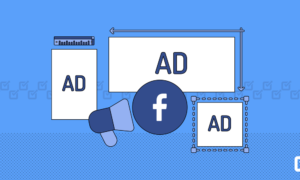A well-known social networking website appears to have collaborated closely with Facebook and approximately eighty software professionals on a top-secret project that was given the codename “Spartan.” This is according to the most recent information that has been available. The goal of the Spartan application platform, which is built on HTML 5 and designed to sidestep iOS devices sold in the Apple Store, is to evade those restrictions. The HTML 5 standard serves as its basis. You can visit this website LinkWat for more information regarding Facebook and social media platforms.
According to sources that are familiar with the project as Facebook, the firm plans to coordinate its efforts in a row so that it may keep control of Web applications without having to impose constraints on the App Store. This is according to sources that are familiar with the project. As a kind of vengeance for breaking the monopoly that Apple currently enjoys on the distribution of mobile applications, Facebook reportedly intends to use Apple’s products against the firm in the future. This information comes from a few more sources.
Everything is fascinating, but one thing, in particular, jumps out above the rest: Apple has been a significant effect on the creation of the Mobile Safari web application for the iPhone. This is the thing that shines out above everything else. Because it is so fascinating, this is something that immediately stands out to me. This is the piece of the collection that fascinates me the most. On the other hand, Apple made good on its promise in 2008 and implemented several important alterations to how the App Store carried out its business operations.
The source claims that he has seen the project with his own eyes and that the Spartan project is an online version of Facebook mobile menus that includes the most recent apps. This information comes from the source. When applications are loaded, the applications themselves will be encased in a Facebook envelope when they are displayed. When the applications are loaded, Facebook will combine with the other social networks to provide features like credit. This combination will take place when the applications are loaded.
If it were implemented, credits—which are how micro companies assume a significant part in the growth of the platform—would provide an alternative strategy for monetizing the App Store. Credits are how micro companies assume a significant part in the growth of the platform. To hasten its transition away from Adobe Flash and toward HTML 5, Facebook is actively looking for third-party developers to work on the Zynga platform. This is being done in the hopes that it will speed up the process.
However, the primary purpose of the initiative is to get customers to use Facebook rather than the App Store as the sharing platform for games and other programs. This will be accomplished through a variety of methods. It has been stated that the major goal of the project is to lessen the amount of reliance that video game developers have on Adobe Flash.
Facebook, the popular social networking website, does not as of yet have a native application tailored specifically for the iPad that can be downloaded by users. Having said that, when it opened the App Store, the social networking website started selling applications that could be used on the iPhone and the iPod touch. In October 2013, it was reported that Steve Jobs had sent an invitation to Mark Zuckerberg, the CEO of Facebook, for the two of them to have dinner together and address the matter. Learn more about social media networking and the latest trending technologies by clicking here: Techiance.



































